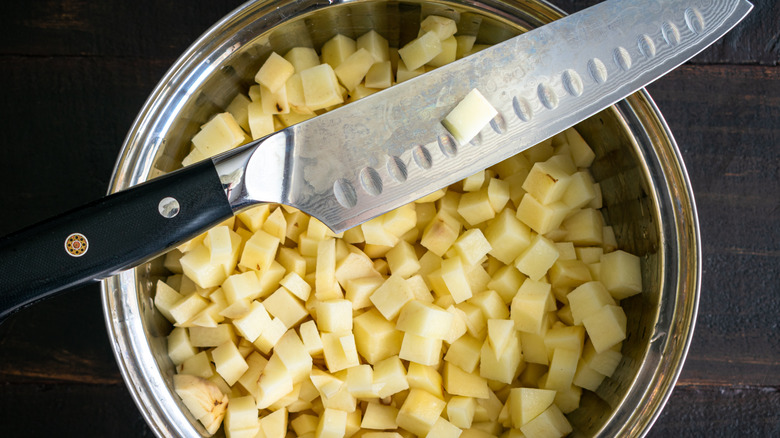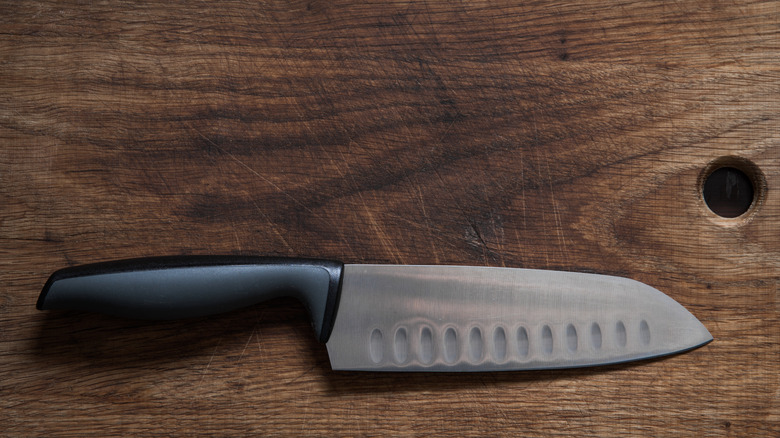Why Do Some Knives Have Dimples?
We may receive a commission on purchases made from links.
A set of good knives is a must in any kitchen. They are probably the one piece of equipment you will use more than any other when you cook. In fact, chef Dennis Prescott, co-host of "Restaurants on the Edge" and author of "Eat Delicious: 125 Recipes for Your Daily Dose of Awesome," told NBC News, "Knives are a chef's best friend and the most essential tool in every kitchen. You'll pick one up literally every time you cook." But if you have ever gone shopping for these cutting tools, you know there are a lot of choices and options to be had. One option that always intrigues us are the knives that have dimples along the blade. Do they serve a purpose or are they just a cool decorative quality?
Per Fine Cooking, these knives with the dimpled edge are called Santoku and are Japanese all-purpose knives. And believe it or not, those dimples are not just a cool modern decorative take on knives, they serve a helpful purpose. Prescott noted to NBC that Santoku knives really allow for a "refined slicing." He said, "This style has a wide blade with no tip, a dull back spine that curves down to meet the straight-edged front blade." But about those dimples ...
They help with friction and sticking
Fine Cooking shares that the dimples of Santoku knives are called "kullenschliff" or a "Granton edge," and they help decrease friction so as you are slicing and dicing all your onions and bell peppers don't stick to your knife. Do they work? Knives and Tools put these cutting tools to the test and found that knives with a flat surface are more likely to have food stick to them than those with dimples or kullenschliff. And they went on to reveal a knife with holes can keep food from sticking even better than those with dimples. Santoku knives have definitely become super popular and spurred other knife makers to add those fun-looking dimples to their knives as well.
However, most experts share that as awesome as Santoku knives are, the best knives are those that are sharp and well-maintained. Translation, don't break the bank splurging on this kitchen gear. Dennis Prescott also explained to NBC News that liking your knives is really important because it will make cooking more enjoyable. Prescott said, "Whether you prefer the Japanese-style santoku or German and French-style chef's knife, you want to love your knife. Like, actually love."

